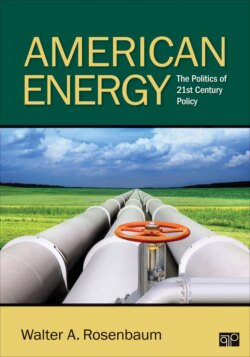Читать книгу American Energy - Walter A. Rosenbaum - Страница 27
На сайте Литреса книга снята с продажи.
The Tyranny of the Electoral Cycle
ОглавлениеElections have an imperious hold on presidents, members of Congress, and their respective staffs. For elected officials, the clock segmenting the time during which decisions are made ticks away in four- and eight-year intervals. These are Washington’s constitutionally appointed electoral cycles. Within these time frames, federal officials will continually sift policy decisions for their electoral implications. “Good” and “best” policy is often defined as much by electoral impact as by its substantive merit.
Elections affect energy policymakers in two particularly important ways. First, the short term dominates the long term. Presidents and legislators may talk about programs enduring for decades or defend the interest of unborn generations, but their eye is usually upon the program’s impact on the next primary or general election. “Presidents and their staffs arrive at the White House charged up to produce results, to make good on the pledges of the campaign,” observed presidential scholar Thomas Cronin. “The President and his staff think in terms of two- and four-year frames, at most. They strive to fulfill campaign pledges and related priorities with a sense of urgency, seeking ways to build a respectable image for the forthcoming electoral campaign.”54
Members of Congress are similarly preoccupied with elections. The constituency is an unseen presence at any deliberation about public policy, the electoral impact on the folks back home a continual preoccupation. Any congressman or senator could probably sympathize with the two-term Democratic congressman caught between the dominant economic interests in his constituency and his own desire to support a decades-long regulatory program to reduce acid precipitation. “I feel,” he lamented to a reporter, “as if I pitched my tent on an anthill, there are so many people crawling over me. … I can’t win either way. This is how representatives get whipsawed. … I vote one way and the people say ‘Aren’t you supposed to represent the national interest? I vote the other way and people say, ‘We sent you there to represent us.’”55
